Current ARCS Foundation Utah Scholars

Olivia is an incoming PhD student in mechanical engineering, transitioning from her undergraduate studies at Mississippi State University. Originally from Petal, MS, she has been researching lattice-integrated spinal implants designed for additive manufacturing.
Under the mentorship of Dr. Ashley Spear, Olivia plans to pursue research in computational solid mechanics and computational materials science, with an emphasis in metal additive manufacturing.
In her spare time, Olivia enjoys painting, traveling, and spending time with her friends and family.
Olivia received the Ruth Novak and Karen and Paul Ross Award.

Isabella Hoyer is a Ph.D. student in Chemical Engineering at the University of Utah. She earned her B.S. in Chemical Engineering from the University of Washington, with a minor in Data Science.
While at UW, she conducted honors research focused on sustainability, served as Vice President of Women in Chemical Engineering, and taught as an Engineering Peer Educator.
At the University of Utah, she will be conducting research in Dr. Kody Powell’s lab, where she plans to pursue research in geothermal energy. Isabella is passionate about mentoring and outreach, and hopes to pursue a career in academia, developing sustainable energy solutions while supporting the next generation of engineers.
Erica received the Diane and Tom Might Scholar Award.

Erica is starting her first year as a Chemical Engineering PhD student. She received her bachelor’s degree in Chemical Engineering with a concentration in Biomolecular Engineering from Clemson University. During her undergrad, Erica was involved in research using microfluidic devices to study the effects of fluid shear stress on metastatic ER+ breast cancer.
Erica plans to conduct research during her PhD related to biomolecular engineering and biotechnology, with the end goal of pursuing a career in pharmaceutical research and development.
Erica received the ARCS Utah Chapter Award.

Cameron Reinisch, MD, earned his medical degree at the University of Cincinnati College of Medicine, where he was mentored by and conducted research with renowned corneal specialist and scientist Edward Holland, MD. Holland researches limbal stem cell deficiency, an eye condition where the cornea loses its ability to heal and renew itself properly, and the potential use of stem cell transplantation to treat it.
Dr. Reinisch’s scientific publications have focused on post-operative outcomes, including graft failure, immunosuppressant therapies, and their systemic impact, as well as a previously unreported post-stem cell transplant finding coined “sludging,” and how this differs from rejection. He has presented research findings at the American Academy of Ophthalmology, American Society of Cataract and Refractive Surgery, American Society of Retina Specialists, and local research conferences in Ohio.
As a resident at the John A. Moran Eye Center, he plans to expand his research in ocular immunology and stem cell regeneration through innovative methods and interventions.
Dr. Reinisch received the Kathie and Mark Miller Award in honor of former Moran CEO Randall J Olson, MD.

Amanda Wade, MD, graduated with honors from Seattle University with a Bachelor of Arts in English/Creative Writing. She subsequently completed a post-baccalaureate at Portland State University before earning a medical degree from Oregon Health and Science University.
At the Casey Eye Institute, under the mentorship of Christina Flaxel, MD, she focused on projects related to long-term outcomes in the treatment of acute retinal necrosis, an inflammatory eye disease. She has additionally published work related to high-value care in medical education.
As a resident at the John A. Moran Eye Center, Dr. Wade plans to focus her research on identifying and addressing factors that influence glaucoma treatment. She is committed to advancing eye care equity and education, both locally and across the globe. In her free time, she also enjoys puns.
Dr. Wade received the Kathie and Mark Miller Award in honor of Moran CEO Jeff Pettey, MD, MBA.

Caden is an incoming electrical engineering PhD student with a strong interest in neural engineering and robotics. He received his bachelor’s in computer engineering in 2023 from Mercer University in Macon, GA. He graduated Summa Cum Laude and was awarded the Outstanding Graduate in Computer Engineering Award. Since then, he worked as a Research Assistant at Mercer University's Machine Intelligence and Robotics Laboratory, focused primarily on developing curricula to teach machine learning to middle and high school students across the Southeast. He was recently awarded an NSF Graduate Research Fellowship and is beginning his graduate studies under Dr. Jacob George. Caden received the Diane and Tom Might Award.

Jenna earned her medical degree and a Bachelor of Science in Biomedical Engineering from the University of Utah.
At the U of U, her research projects included studying the patterns of X-linked retinitis pigmentosa, a group of rare eye diseases affecting the retina. Jensen also worked to develop a medical device to detect large vessel occlusions in strokes and examined the prevalence of astigmatism in children in the Navajo Nation.
Jensen has also focused on work that empowers women in the ophthalmology field, including writing a book chapter with John A. Moran Eye Center female physicians about eye conditions found in older women.
As a Moran Eye Center resident, she plans to continue work that explores the relationships between genetics and ocular disease and advocates for women with unrecognized or undertreated eye disease. Jenna received the Kathie and Mark Miller Award in honor of Dr. Randall J Olson.

Shima earned her medical degree with high distinction from Shahid Beheshti University of Medical Sciences in Iran. She completed her ophthalmology residency at Tehran University of Medical Sciences, graduating with honors.
She then completed a postdoctoral research fellowship at Schepens Eye Research Institute, affiliated with Harvard University and Massachusetts Eye and Ear, focusing on ocular immunology, corneal neovascularization, and transplant immunity. Dehghani also completed a uveitis fellowship at Bascom Palmer Eye Institute.
Her clinical research has focused on corneal pathologies, conjunctival reconstruction, and corneal transplantation.
As a John A. Moran Eye Center resident, she plans to expand her research and explore systematic approaches to optimizing high-quality ophthalmic care.

Ethan is a chemical engineering student at the University of Utah studying ways to apply machine learning and optimization to improve efficiency in manufacturing and power generating operations. His next project involves analyzing potential energy and economic solutions for coal communities in southern Utah as the state transitions from fossil fuels to renewable energy. Ethan received the Ruth Novak and Karen and Paul Ross Award.

Nicholas is going into his first year as a PhD student in chemical engineering after completing his undergraduate degree here at the University of Utah. He is from here in Utah, and he is interested in working in computational fluid dynamics with Dr. Tony Saad. When not working on school, he enjoys playing piano, cooking, and sleeping.
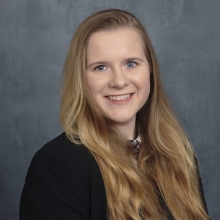
Originally from Edinboro, Pennsylvania, Alexis is a rising Mechanical Engineering PhD student in the John and Marcia Price College of Engineering. She completed her undergraduate degree at Duquesne University in Biomedical Engineering with minors in Mathematics and Biochemistry. During her time in undergrad, she was an active advocate for women in STEM, serving as the president of Duquesne’s Society of Women Engineers chapter. Alexis was also a recipient of the Clare Boothe Luce Scholarship Award for her final two years. Her research interests are in computational fluid dynamics and its applications to the cardiovascular system. She plans to pursue research under the guidance of Dr. Amir Arzani on developing patient-specific computer models to observe how blood flow affects stroke. Alexis received the Ruth Novak and Paul and Karen Ross Award.
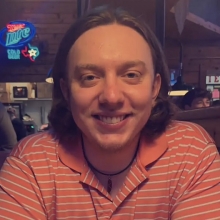
Dallin Littlewood is a recent University of Utah alumnus who graduated with a combined Bachelor’s/Master’s degree in Chemical Engineering with multiple honors, including Magna Cum Laude. Dallin has gained extensive systems engineering experience while working with catalytic reactors and solid oxide fuel cells at a local clean technologies company, OxEon Energy. Dallin will be returning to the University of Utah to pursue a PhD in the department of Chemical Engineering, where he will be working with Dr. Tony Saad’s and Dr. James Sutherland’s research groups. It is anticipated that Dallin’s areas of research will encompass fast computational fluid dynamics solvers and reduced-order modeling of turbulent reacting flows. Dallin recieved the ARCS Utah Chapter Award.
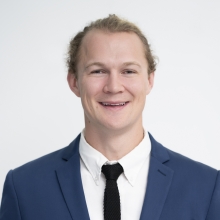
Chase Paulson, MD, completed his Bachelor of Science at Brigham Young University while playing collegiate lacrosse. He earned his medical degree from the University of Utah. Under the mentorship of Barbara Wirostko, MD, at the John A. Moran Eye Center, he has worked on a variety of projects and publications in the field of pseudoexfoliation syndrome and glaucoma with related systemic associations. Working with Moran’s Global Outreach Division, he has conducted research in Guatemala and has studied these conditions across Utah, including the Navajo Nation. Other projects have included gender representation of speakers at major ophthalmology conferences and the preservation of cutthroat trout in the Intermountain West. At Moran, he plans to utilize unique database resources and continue research in optimizing high-quality care locally, regionally, and globally. Chase received the Diane and Tom Might Award.
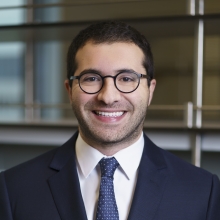
Nadim Azar, MD, graduated with high distinction from the American University of Beirut with a Bachelor of Science in Biology in 2017. He earned his medical degree from the American University of Beirut in 2021. He then completed a postdoctoral research fellowship at the Duke Eye Center. At Duke, under the mentorship of Victor Perez, MD, he focused on research in ocular immunology, including the therapeutic and preventive potential of peptides. His clinical research has also focused on applying artificial intelligence in ophthalmology and pioneering innovative methodologies for detecting dry eye disease. He has presented his research at numerous conferences and has co-authored multiple peer-reviewed articles and book chapters. As a Moran resident, Dr. Azar plans to expand his research, particularly in cornea and anterior segment. Nadim received the Kathie and Mark Miller award in honor of Randall J Olson.
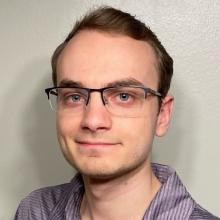
Dallin graduated summa cum laude from the University of Utah with an Honors Bachelor of Science in Electrical Engineering. He received multiple scholarships during his undergraduate including: Utah Flagship Scholarship, Regents’ Scholarship, Carl Durney Scholarship, Robert & Mary Jane Engman Endowed Scholarship, Kurt M. Stout Scholarship, and the Scott & Maxine Tattersall Scholarship. In his internship with Idaho National Laboratory, he led a project focusing on further applications of current cellular network infrastructure where he learned skills in cognitive radio, software-defined radio, multicarrier communications, and 4G/5G wireless systems. Currently, he is pursuing his PhD in Electrical Engineering in the Wireless Communications Lab with Dr. Farhang with his research in high frequency skywave communications and further development on the Filterbank Multicarrier Spread Spectrum (FBMC-SS) receiver. In his spare time, Dallin loves camping and reading books in the quiet ambience of nature next to a comforting campfire.
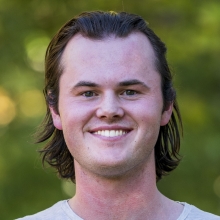
Liam is a recent graduate of the University of Washington with a B.S. in Mechanical Engineering concentrated in Biomechanics and a minor in Applied Mathematics. He spent his undergraduate time researching prosthetic hands, building drones, and most recently co-founded a medical device startup company. Liam grew up in Seattle and loves spending time outside through teaching sailing and skiing, being a volunteer ski patroller, cycling, climbing, and backpacking, and he looks forward to exploring all that Utah has to offer!
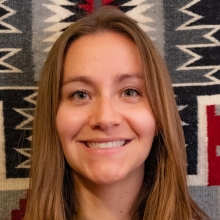
Claire completed her Honors B.S. in Mechanical Engineering with an emphasis in Robotics at the University of Utah doing research in additive manufacturing of metals under Dr. Wenda Tan. Currently, she is working toward a Ph.D. degree in Mechanical Engineering in the Multiscale Mechanics of Materials lab under Dr. Ashley Spear. Her current research focuses on the multiscale modeling of metal matrix composites and she hopes to eventually utilize machine learning as a prediction tool for failure in these materials. She grew up very active in Los Alamos, New Mexico, and continues to enjoy the running, skiing, and climbing offered here in Utah.
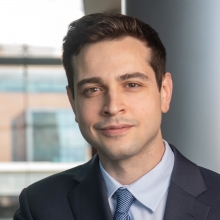
Sánchez earned his medical degree at Dartmouth Medical School. His honors included receiving the Arthur Naitove Surgical Scholar Award, given to one graduating medical student with the greatest potential for making a significant contribution to the field of surgery. At Dartmouth, Sánchez conducted research in a variety of subspecialties, including the role of anti-vascular endothelial growth factor therapy injections to treat age-related macular degeneration. Sánchez, who grew up in Hialeah, Florida, as the son of Cuban immigrants, is passionate about providing care to underserved and Spanish-speaking communities. At Moran, he looks forward to continuing his research and providing high-quality, cutting-edge patient care. Dr. Sánchez was awarded the Might Family Foundation Award in memory of Bertrand T. Might.
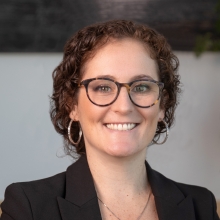
Woertz earned her medical degree and doctorate through the Medical College of Wisconsin (MCW). Her dissertation on the visual system in human albinism —completed under Joseph Carroll, PhD, through the Dennis P. Han, MD Advanced Ocular Imaging Program—earned a top MCW prize. She has co-authored numerous peer-reviewed journal articles and contributed to work presented at prestigious vision and neuroscience conferences. Her extensive training included a visiting student research rotation at Moran under the mentorship of Paul S. Bernstein, MD, PhD. During this rotation, she continued to study human albinism, using fluorescence lifetime imaging ophthalmoscopy (FLIO), an advanced imaging technique designed to characterize pigments in the retina. During her residency training, she plans to further her research into the connection between retinal pigment, retinal cellular structure, visual acuity, and genetic variability in human albinism. Erica received the Mark and Kathie Miller Award in honor of Moran CEO Randall J Olson, M.D.
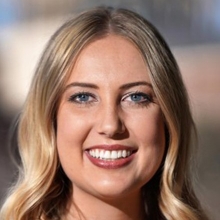
Noelle Brown is pursuing a PhD in Computing specializing in Human-Centered Computing with research interests in Data Science education and ethics in AI. She received her MS in Data Science from Southern Methodist University and BS in Mathematics from Colorado State University and has experience working as both a mathematics and Data Science instructor. At the University of Utah, she is working with Dr. Eliane Wiese to research ways to integrate ethics into AI courses with the hopes of teaching future technology leaders to be mindful of the potential consequences of their code. Noelle is passionate about fair and ethical machine learning and believes that she can have the most impact in the field by educating others. She considers herself a lifelong learner and views education as one of the most important gifts in life. In her free time, Noelle enjoys hiking, gardening, and spending time with her loved ones. Noelle received the Diane and Tom Might Award.
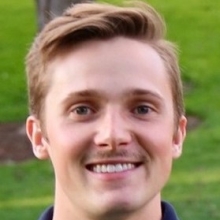
Henry Crandall graduated suma-cum-laude from the University of Utah with a BS in electrical engineering and a minor in Russian. As an undergraduate he revived the dormant branch of the IEEE (Institute for Electrical and Electronics Engineers) student chapter and was elected to serve as the director of networking, helped launch the IPCEF student chapter and served on the Student Advisory Committee. Henry has received multiple scholarships including the Honors at Entrance University scholarship, Micron Undergraduate Scholarship, IPA Undergraduate Scholarship, Ivory Sophomore RISE scholarship, and IPCEF student scholarship. He has completed several internships gaining experience in the electronics and microelectronics industries, working with Sanmina Corporation and Micron Technologies. At the University of Utah Henry is pursuing a PhD in Electrical Engineering in the Sanchez Research Lab with a focus on developing new BioImpedance technologies to be used in the next generation of wearable health monitors. Henry received the Dr. Cecelia H. Foxley Award in honor of Dr. Rich Brown.
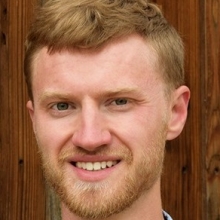
Samuel Westgard received a B.S. in mechanical engineering from Clarkson University and graduated with great distinction. He is interested in the design and control of wearable robotic devices and will be responsible for developing a novel robotic knee and ankle prosthesis in the University of Utah’s Bionic Engineering Lab under Dr. Tomasso Lenzi. Previously, Sam worked as an R&D co-op engineer and as an engineering intern for Parker Hannifin’s Human Motion and Control business unit. At Parker, he was responsible for the R&D of wearable robotic devices and gained valuable industry experience and exposure to devices such as the Indego Exoskeleton, a powered exoskeleton used for stroke and spinal cord injury rehabilitation. Sam also developed various cycle testing fixtures that replicate human gait and has a pending patent for a fixture that he co-invented. In his free time, Sam enjoys biking, rock climbing, and exploring the outdoors. Sam received the Karen and Paul Ross Award.
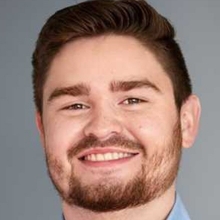
Matthew R.T. Williams is a proud Hoosier, entrepreneur, and passionate problem solver. Originally from South Bend, Indiana, R.T. came to the University of Utah as an undergraduate student for all the opportunities it presented. In his undergraduate career, R.T. started multiple organizations, was one of the first graduates to complete the Engineering Entrepreneurship Certificate, and was the first student at the University of Utah to complete the National Academy of Engineering’s Grand Challenge Scholars Program. Outside the classroom, R.T. has worked with consulting firms in the energy, intellectual property, and food processing industries. R.T. is excited about pursuing a doctorate as he seeks to expand his knowledge and add value to the energy and consulting industry. The University of Utah was the perfect match for R.T. to continue his education, and the ARCS Scholar support will only enhance R.T.’s abilities to accomplish his goals. R.T. received the Dr. Cecelia H. Foxley Award in honor of Dr. Rich Brown.
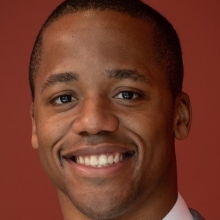
Nnana Amakiri, MD, earned his Bachelor of Arts in Biology from Cornell University in 2017 with a concentration in Neurobiology. He completed his medical degree at Texas Tech Health Sciences Center in 2021, where he was elected president of his medical school’s Gold Humanism Honor Society and president of the Dean’s Ambassadors group. Dr. Amakiri is one of four siblings whose Nigerian parents immigrated to the United States several years before his birth. This strong international connection and experience seeing Nigeria’s health system first-hand spurred his interest in global health. At Texas Tech, Dr. Amakiri also spent time researching the effects of amyloid beta cell components and their interaction with MicroRNA in the genetic makeup of Alzheimer’s disease. As a resident at the John A. Moran Eye Center, Dr. Amakiri will focus on extending sustainable, high-quality eye care to resource-poor areas worldwide. Like the role models who shaped his career growth, Dr. Amakiri plans to make a special effort to mentor students from underserved backgrounds—especially at the high school, undergraduate, and medical student levels. Nnana received the Kathie and Mark Miller Award in honor of Dr. Randall J. Olson.
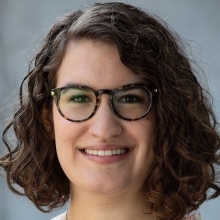
Ashley Polski, MD, graduated Summa Cum Laude from Andrews University in 2016 with a Bachelor of Science in Biology and a Chemistry minor. She earned her medical degree in 2021 from the Keck School of Medicine at the University of Southern California, where she graduated with Highest Honors and Distinction in Research. In medical school, Dr. Polski worked with ocular oncologist Jesse L. Berry, MD. As a third-year medical student, she received the USC Dean’s Research Scholarship and Wright Foundation Research Award to spend a dedicated research year at Children’s Hospital Los Angeles. The Retina Research Foundation and Knights Templar Eye Foundation awarded Dr. Polski grants to present her work at national conferences. She has contributed to over 13 peer-reviewed journal articles and numerous book chapters related to retinoblastoma genetics and biopsy techniques, healthcare disparities, and prognostication in ocular oncology. In her free time, Dr. Polski creates miniature oil paintings and developed an art business. She has raised thousands of dollars through her business to support CoachArt, a non-profit organization that provides free arts and athletics programs to children with chronic illnesses. Dr. Polski plans to participate in glaucoma research and continue pursuing her interests in translational medicine and community outreach as a resident at the Moran Eye Center. Ashley received the ARCS Foundation Utah Chapter Award..
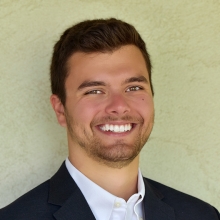
Ethan Griswold is pursuing a doctoral degree in biomedical engineering with a focus on biomaterials and therapeutics at the University of Utah. Prior to Utah, Ethan conducted research at the University of Vermont and at the Uniklinikum RWTH Aachen University in Germany. He worked on improving the hemocompatibility of lung assist devices, pulmonary xenotransplantation of mammalian and avian species, immunogenicity studies of proteins, and adapting 3D printing technology for biological materials. Ethan completed his Bachelor of Science at the Rochester Institute of Technology, where he was part of several organizations, including Tau Beta Pi Engineering Honors Society. He also served as president of his local chapter of Engineering World Health, as part of which he traveled to Guatemala and worked with local hospitals to repair medical equipment. Ethan received the Diane and Tom Might Award in honor of their grandson, Bertrand Might.
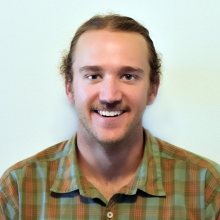
Jake graduated magna cum laude with an Honors B.S. in Chemical Engineering from the University of Utah in 2017. Since then he has worked as a field engineer for a water treatment company specializing in biological water treatment at various industrial sites. Jake’s decision to pursue a PhD comes from his love of the environment and his desire to find innovative and sustainable engineering solutions that preserve the environment while also amplifying humans’ quality of life. Jake is working in Dr. Kody Powell’s research group with his research based around modeling, optimizing, and controlling complex energy systems. Jake enjoys challenging himself mentally through engineering problems and physically through various backcountry adventures. Jake received the ARCS Foundation Utah Chapter Award.
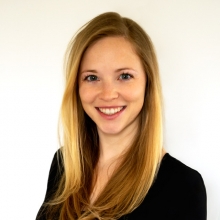
Lydia Sauer completed her medical school training at the Friedrich Schiller University in Jena, Germany. During this time, she also pursued a doctoral degree in the Department of Experimental Ophthalmology in Jena under the mentorship of Dr. Martin Hammer. Her thesis focused on how a new retinal imaging technology, called fluorescence lifetime imaging ophthalmoscopy (FLIO), could be applied in basic science and clinical approaches. Her thesis work in FLIO imaging received a prestigious thesis award by the German Ophthalmological Society. Dr. Sauer’s research in FLIO related to retinal carotenoids—antioxidants made by plants that are believed to neutralize light-induced damage in the eye—connected her with Dr. Paul S. Bernstein at the John A. Moran Eye Center at the University of Utah. She accepted a visiting scholar position in clinical research with Dr. Bernstein, an opportunity that established the Moran Eye Center as the first FLIO imaging and research center in the United States. FLIO, an extremely sensitive, non-invasive camera, is used to map subtle changes in the retina before structural damages occur, leading to early diagnosis and treatment and a better understanding of eye diseases. Dr. Sauer’s primary research interest focuses on inherited retinal diseases, including macular telangiectasia type 2 and age-related macular degeneration. From 2018 until 2020, Dr. Sauer worked as a postdoctoral researcher in Dr. Bernstein’s lab. Her research was recognized with the Heidelberg Engineering Xtreme Research Award in 2019. As a resident, Dr. Sauer’s research goal aims to further establish FLIO as a clinical diagnostic tool, specifically with retinal diseases. In her free time, Dr. Sauer enjoys hiking, skiing, and photography. Lydia is receiving the Mark and Kathie Miller Award in honor of Dr. Randall Olson.
